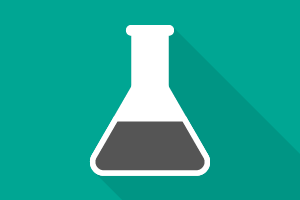Classroom Resources: Reactions & Stoichiometry
Filter by:
26 – 32 of 32 Classroom Resources
-

Stoichiometry | High School
Lesson Plan: How to do Stoichiometry Problems Mark as Favorite (16 Favorites)
In this lesson, students learn templates for performing stoichiometry problems. They then put the methods to the test with a practice worksheet.
-

Stoichiometry, Dimensional Analysis | High School
Lesson Plan: Stoichiometry Set-up Method Mark as Favorite (20 Favorites)
In this lesson, students will learn how to follow a process of visual cues in combination with a step-by-step problem solving method for different types of stoichiometric problems. This method can be particularly beneficial for students who struggle with completing multi-step calculations.
-

Chemical Change, Limiting Reactant, Classification of Reactions, Percent Yield, Stoichiometry, Concentration, Molarity, Mole Concept, Dimensional Analysis | High School
Demonstration: First Day Review Mark as Favorite (6 Favorites)
In this demonstration, students see evidence of a chemical reaction.
-

Molecular Formula, Stoichiometry | High School
Lab: Finding the Formula of Magnesium Oxide Mark as Favorite (8 Favorites)
In this lab, students will recognize that oxygen has mass and that heating can involve and increase in mass as an element reacts to become an oxide
-

Limiting Reactant, Concentration, Net Ionic Equation, Stoichiometry, Balancing Equations, Precipitate, Mole Concept, Dimensional Analysis | High School
Lab: Finding CO2 Mass in your Breath Mark as Favorite (10 Favorites)
In this lab, students will measure how much carbon dioxide they exhale by reacting their exhaled breath with lime water (calcium hydroxide).
-

Stoichiometry, Percent Yield | High School
Lab: Baking Soda Stoichiometry Mark as Favorite (18 Favorites)
In this lab, students will decompose baking soda and use stoichiometry to determine the proper balanced chemical equation of its decomposition.
-

Stoichiometry, Gas Laws | High School
Lesson Plan: Mechanisms and Properties of Airbags Mark as Favorite (9 Favorites)
In this lesson students will learn about the mechanisms and properties of airbags, and examine the choice of airbag inflator from several points of view.